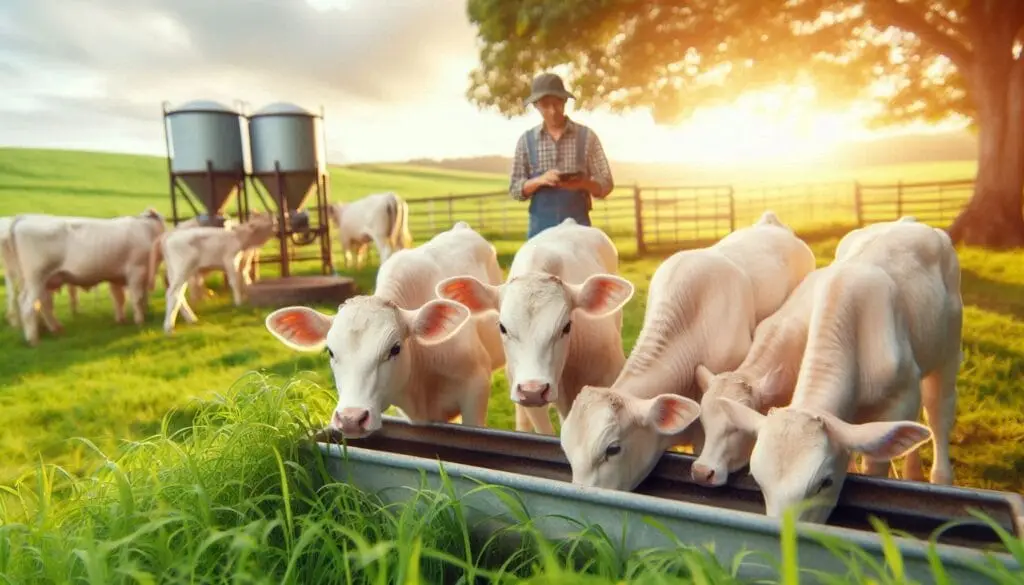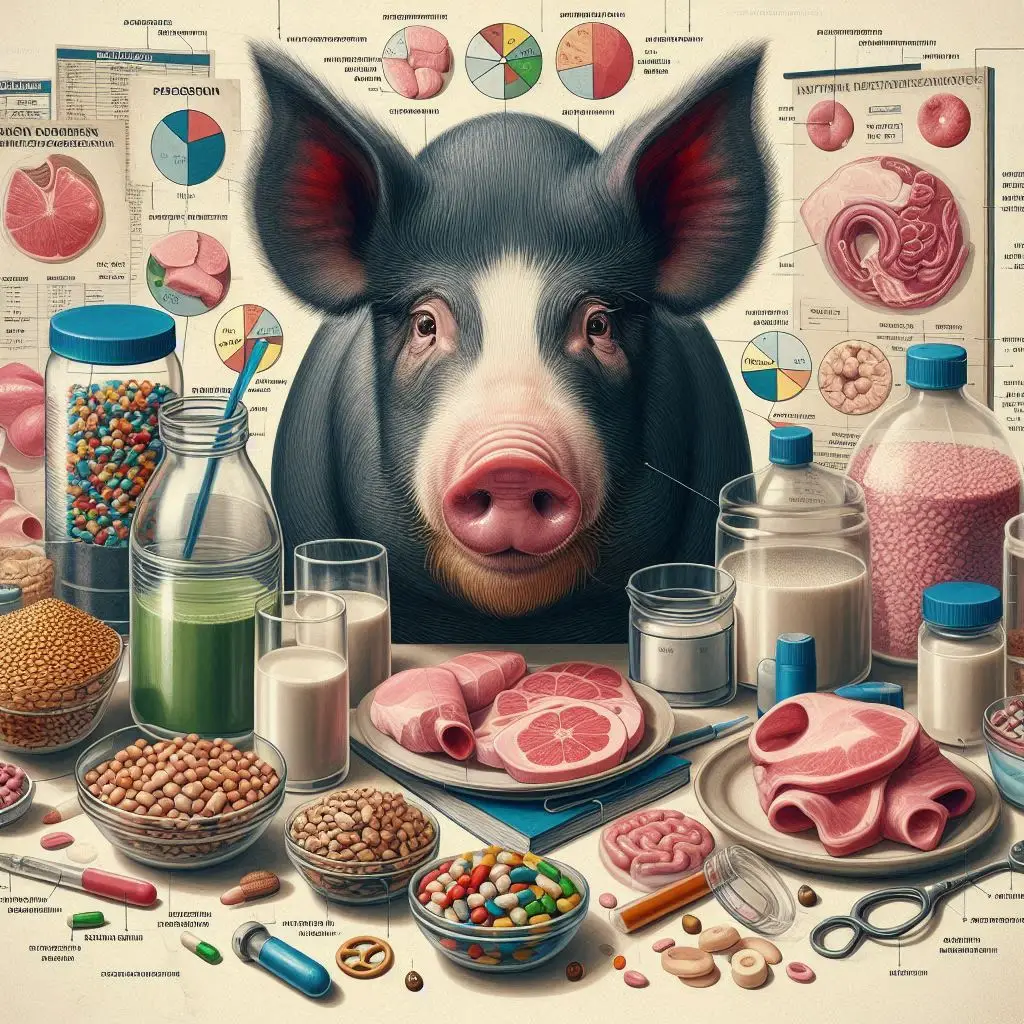Feeding Strategies for Calves, Pregnant Animals, Work Animals, and Breeding Bulls

Feeding strategies for calves, pregnant animals, work animals, and breeding bulls are crucial for ensuring their health and productivity. Below is a detailed overview of effective feeding practices for each category.
Feeding Calves
Early Nutrition
- Colostrum: Newborn calves should receive colostrum within the first hour of life to ensure immunity and health.
- Milk Feeding: For calves under three months, whole milk or skimmed milk is essential, gradually introducing calf starter feed around two to three weeks of age. By six months, calves should receive a concentrate mix to support growth.
Growth Targets
- Calves should be managed to achieve optimal growth rates, with an average daily weight gain of about 442 to 653 grams depending on breed. This is crucial for early sexual maturity and reducing the age at first calving (AFC) to around 30-34 months for heifers.
Feeding Pregnant Animals
Nutritional Requirements
- Last Trimester: Pregnant animals require increased nutrition, particularly in the last two months of gestation. A diet rich in energy and protein is essential to support fetal development and prevent issues like pregnancy toxaemia.
Supplementation
- High-quality feed that includes anionic salts and chelated minerals is recommended during this period to ensure proper fetal growth and maternal health.
Feeding Work Animals
Energy Requirements
- The nutrient requirements for working animals vary based on the intensity of their labor. For example, a bullock doing heavy work requires significantly more energy compared to one performing light tasks.
Ration Composition
- A balanced diet should include good quality fodder and concentrates, with specific adjustments based on the animal’s workload. For instance, a 400 kg bullock performing six hours of work needs a well-calculated ration to meet its energy demands.
Feeding Breeding Bulls
Nutritional Needs
- Breeding bulls should be fed a diet that maintains their body condition while supporting reproductive health. This includes good quality forage and a concentrate mix to ensure they are in optimal condition for breeding.
Specific Guidelines
- Nutritional guidelines suggest specific amounts of digestible crude protein (DCP) and total digestible nutrients (TDN) based on the bull’s body weight. For example, a 600 kg bull may require about 530 g of DCP and 5.4 kg of TDN daily.
Conclusion
Effective feeding practices for calves, pregnant animals, work animals, and breeding bulls are essential for maximizing health and productivity. Proper nutrition tailored to the specific needs of each category enhances growth and reproductive performance while helping to prevent health issues.
For more pearls of Vets Wisdom:






Responses